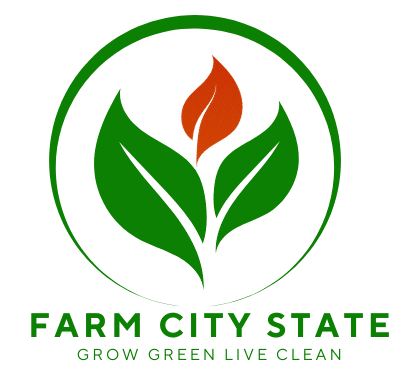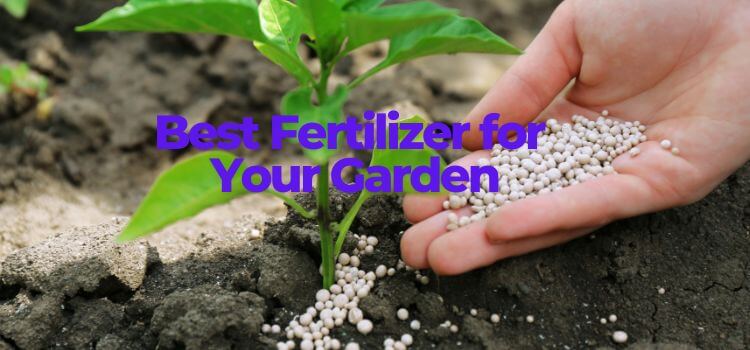As an Amazon Associate, I earn from qualifying purchases.
I remember starting my gardening journey and quickly realizing that choosing the best fertilizer for your garden wasn’t as simple as I thought. There are so many options on the market, each claiming to offer the best results. It’s easy to feel overwhelmed.
Over time, I learned that understanding the specific needs of your plants and soil is crucial in selecting the right fertilizer. Fertilizers are not one-size-fits-all, and using the wrong one can lead to poor growth or even harm your plants. I’ve experimented with various types, and now I know what works best for my garden.
In this guide, I’ll share what I’ve learned about how to choose the best fertilizer for your garden. Whether you’re just getting started or have some experience, these tips will help you make an informed choice and ensure your plants get the nutrients they need to thrive.
Why Is Choosing the Right Fertilizer So Important?
Choosing the right fertilizer for your garden can make a huge difference in plant growth and health. But how do you make the right decision? Fertilizer is essentially food for your plants, and just like us, plants need the right balance of nutrients to grow. The main nutrients your plants need are nitrogen (N), phosphorus (P), and potassium (K).
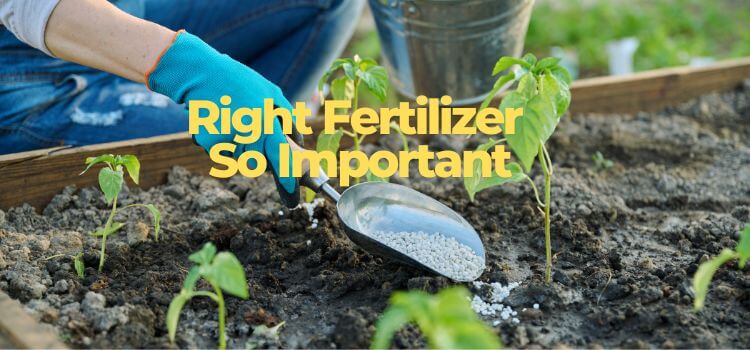
- Nitrogen (N): Helps plants grow strong and green.
- Phosphorus (P): Supports root development and flowering.
- Potassium (K): Improves overall plant health and resistance to disease.
However, the right fertilizer isn’t just about these three. Some plants may need additional nutrients, such as calcium, magnesium, and sulphur, to thrive. Each garden is unique, so knowing your plant’s needs is key.
Key Points:
- Choose a fertilizer based on what your plants need.
- Consider your soil’s current nutrient levels before deciding.
- Follow manufacturer instructions carefully to avoid over-fertilizing.
What Types of Fertilizers Are Available?
There are many different types of fertilizers, but they can generally be grouped into two main categories: synthetic fertilizers and organic fertilizers.
Synthetic Fertilizers
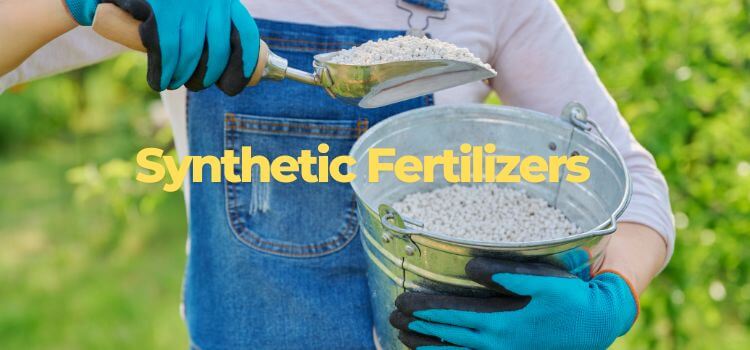
Synthetic fertilizers are manufactured and provide plants with fast-acting nutrients. They are commonly available in liquid, granular, or spike form. These fertilizers work quickly because they contain highly concentrated nutrients.
| Type of Synthetic Fertilizer | Pros | Cons |
|---|---|---|
| Granular Fertilizer | Easy to apply, long-lasting | Can burn plants if over-applied |
| Liquid Fertilizer | Fast absorption, easy to use | Needs frequent application |
| Fertilizer Spikes | Good for slow-release feeding | Can be more expensive |
Organic Fertilizers
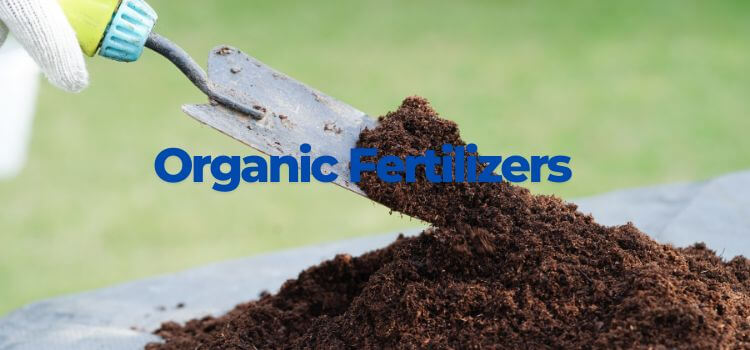
Organic fertilizers come from natural sources like compost, manure, or plant matter. They release nutrients more slowly, and many gardeners prefer them because they improve the soil over time, making it healthier.
| Type of Organic Fertilizer | Pros | Cons |
|---|---|---|
| Compost | Improves soil structure, safe | Takes longer to show results |
| Manure | High in organic matter, rich in nutrients | Can be smelly and messy |
| Fish Meal | Great for root growth, easy to apply | Expensive and can attract pests |
Both types have their advantages. If you want faster results, a synthetic fertilizer might be the best choice. However, if you want to build healthy soil for the long term, organic fertilizers are often preferred.
How Do You Know What Your Plants Need?
Different plants have different needs. Some need more nitrogen to grow strong stems, while others need more phosphorus for better flowers. Here’s a quick guide to choosing fertilizers for common garden plants:
- Leafy Vegetables (lettuce, spinach): These need more nitrogen to grow strong leaves. A fertilizer high in nitrogen is ideal.
- Flowering Plants (roses, tulips): These need a good balance of all nutrients, but especially phosphorus to encourage flowers.
- Root Vegetables (carrots, potatoes): These need more potassium to promote healthy roots.
If you’re unsure, a soil test kit can be a good investment. These kits help you understand the current nutrient levels of your soil and identify any deficiencies. Soil tests can be found at most garden centers or ordered online.
How to Choose the Right Fertilizer for Your Garden
Choosing the best fertilizer isn’t just about picking the first one you see. It requires some knowledge of your soil, and plants, and how much effort you’re willing to put into caring for your garden. Below are some factors to consider when choosing the best fertilizer for your needs:
Understand Your Soil
If your soil is already rich in one nutrient, you may not need to add that particular nutrient. Testing your soil will help you avoid over-fertilizing and ensure you provide exactly what your plants need.
Know Your Plants’ Needs
As mentioned earlier, different plants require different nutrients. Always read the instructions on your fertilizer, as different plants will need different levels of nitrogen, phosphorus, and potassium.
Determine Fertilizer Form
Do you want a fertilizer that’s easy to apply, like liquid, or do you prefer something slower to release, like granular or spikes? Each form has its benefits. Granular fertilizers work well for larger areas, while liquid fertilizers are perfect for container plants.
Consider Organic vs. Synthetic
If you’re into sustainability and want to improve your soil health long-term, organic fertilizers might be your best bet. Synthetic fertilizers offer faster results but can be harsh on the environment if used improperly.

Time Your Fertilizing
Fertilizing your plants at the wrong time can harm them. For instance, fertilizing in the middle of summer can stress your plants out. Most plants benefit from fertilizing in early spring or late fall but always check for plant-specific needs.
Follow Instructions
Fertilizing isn’t an exact science, but it is a science. Over-fertilizing can cause plants to burn or harm the environment. Stick to the recommended dosage on the package, and avoid “guessing” the amount.
How Often Should You Fertilize?
This depends on the type of fertilizer and the needs of your plants. Granular fertilizers can be applied every 4 to 6 weeks, while liquid fertilizers may need to be applied more frequently—often every 1 to 2 weeks.
Some plants, like houseplants, may only need fertilizing once every few months. Others, like vegetables in full bloom, may need more regular feedings. Keep track of your plant’s growth and adjust accordingly.
Note: Fertilizing too much can harm plants. Always follow the directions carefully.
FAQs
What is the best fertilizer for vegetables?
The best fertilizer for vegetables is one high in nitrogen. Vegetables like leafy greens thrive with nitrogen-rich fertilizers. However, during the blooming stage, phosphorus and potassium become important.
Can I use fertilizer on all plants?
Most plants benefit from some form of fertilizer, but not all plants need the same type. Test your soil and consider the plant’s needs before choosing a fertilizer.
How do I know if I’ve over-fertilized?
Signs of over-fertilizing include yellow or brown leaf tips, stunted growth, or burnt-looking foliage. If this happens, flush the soil with water to dilute the fertilizer.
Is organic fertilizer better than synthetic?
It depends on your priorities. Organic fertilizers are slower to act but help build soil health, while synthetic fertilizers offer faster results but can harm the environment if misused.
How do I choose between liquid and granular fertilizer?
Liquid fertilizers work quickly and are great for fast-growing plants, while granular fertilizers are slower to release and can last longer. Choose based on your garden’s needs.
Conclusion
Choosing the best fertilizer for your garden is an important task that requires knowledge of your plant’s needs, the type of soil, and how much care you want to give. There is no “one-size-fits-all” fertilizer, and the right choice depends on various factors like plant type and soil condition.
Start by determining your soil’s nutrient levels and researching the needs of your plants. Don’t be afraid to experiment with different types of fertilizers to see what works best. And remember, gardening takes patience—sometimes it’s not about rushing to get the results but about nurturing your plants over time.
If you’re new to gardening or even if you’ve been doing it for years, finding the right fertilizer will set your plants up for success.
Happy gardening!
